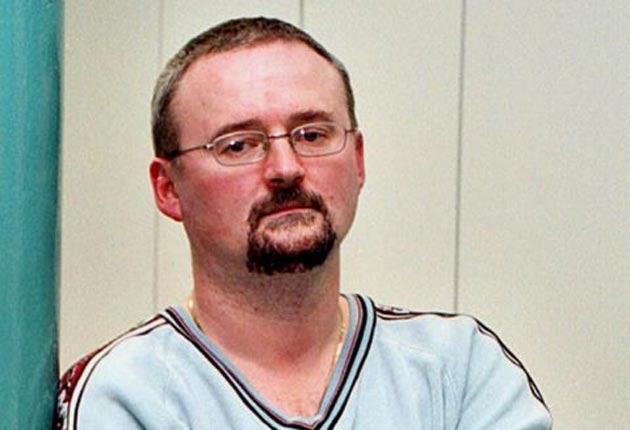US archive told to hand over confidential Troubles tapes

Your support helps us to tell the story
From reproductive rights to climate change to Big Tech, The Independent is on the ground when the story is developing. Whether it's investigating the financials of Elon Musk's pro-Trump PAC or producing our latest documentary, 'The A Word', which shines a light on the American women fighting for reproductive rights, we know how important it is to parse out the facts from the messaging.
At such a critical moment in US history, we need reporters on the ground. Your donation allows us to keep sending journalists to speak to both sides of the story.
The Independent is trusted by Americans across the entire political spectrum. And unlike many other quality news outlets, we choose not to lock Americans out of our reporting and analysis with paywalls. We believe quality journalism should be available to everyone, paid for by those who can afford it.
Your support makes all the difference.The British authorities have demanded that American academics hand over confidential testimony from paramilitary fighters who accused the Sinn Fein president Gerry Adams of running a secret cell within the IRA that carried out the kidnappings and disappearance, according to the Boston institution where the archived accounts are being held.
Boston College said that the materials have been subpoenaed by federal prosecutors acting at the behest of British officials. The news has caused a stir in that it appears to indicate legal authorities in the UK are actively investigating IRA activities, including at least one 1970s murder.
The new move centres on Boston College which in recent years has amassed a collection of interviews with dozens of former republican activists. They were recorded by researchers under assurances that the material would not be released until after their deaths.
Extensive use has already been made of the testimony of one former IRA commander, Brendan Hughes, who died in 2008. His account of the early 1970s, when he said he and Mr Adams were IRA commanders, formed the basis of a book and a television programme.
In particular Mr Hughes said the Sinn Fein leader, a former Westminster MP who is now a member of the Dublin parliament, had been involved in a particularly notorious killing. This was the murder of a mother-of-10, Jean McConville, who was killed and secretly buried by the IRA in the early 1970s as an informer. The organisation originally denied involvement and her body was not recovered until 2003.
While allegations of a link to this episode are embarrassing to Mr Adams, they have not prevented him amassing votes in both north and south. He has flatly denied involvement, a spokesperson repeating: "He has absolutely refuted that he had any knowledge of it."
Mr Adams has said of Mr Hughes: "He wasn't well and hadn't been for a long time, including during the time he did these interviews. He carried with him an enormous sense of guilt over events surrounding the first hunger strike." The Sinn Fein leader has also repeatedly denied ever being a member of the IRA.
The Boston subpoena is said to centre on the evidence of Mr Hughes and another former IRA member, Dolours Price, who with her sister Marian was convicted of blowing up London's Old Bailey in 1973. Both Price sisters, like Hughes, have been strong critics of Mr Adams and of the peace process in which he has been involved, accusing him of betraying republican principles.
Coincidentally, Marian Price was this week arrested in Belfast for questioning about dissident republican violence. She is currently being questioned under anti-terrorist legislation.
Some of the interviews have been conducted by another trenchant critic of Mr Adams, Anthony McIntyre. A former republican activist, he served almost 20 years in prison for an IRA murder. Boston College has yet to decide how it will respond to the subpoena. A spokesman said that its lawyers, seeking more information "about who issued it and why", had been told that a court order authorising it was sealed.
The subpoena raises doubts about the confidentiality of the process of carrying out interviews, and may make others cautious about involvement.
One of those involved in the Boston project, the journalist Ed Moloney, won a legal battle in Belfast in 1999 against a court order to surrender to police his notes of an interview with a loyalist charged with murder. The High Court ruled he was not required to hand them over. The material had been sought by the Metropolitan Police investigating the 1989 murder by loyalists of the Catholic solicitor Pat Finucane.
Join our commenting forum
Join thought-provoking conversations, follow other Independent readers and see their replies
Comments